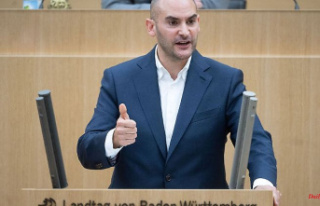Stuttgart (dpa / lsw) - The stricter limit values for air pollutants planned by the EU Commission meet with the approval of Transport Minister Winfried Hermann (Greens). The Greens politician said on Wednesday in Stuttgart at the request of the German Press Agency that the planned tightening can be achieved if the climate policy goals in traffic are achieved. "Climate-friendly traffic is also clean traffic. Outside of traffic, improvements in wood firing are likely to be necessary."
According to the EU Commission, the annual limit value for particulate matter is to be reduced by more than half by 2030. The EU Commission announced that pollution from fine dust with a particle size of up to 2.5 micrometers is to be reduced from 25 to 10 micrograms per cubic meter. With the proposals, the requirements at EU level are approaching the recommendations of the World Health Organization (WHO), but do not fully implement them. Since last year, the WHO has only recommended five micrograms, i.e. one fifth of the currently permitted value.
The Commission's proposal does not contain any specific measures, but sets air quality standards that must be implemented everywhere. How the limit values are reached is a matter for the EU countries. Critics fear that this could lead to driving bans in Germany. The proposal still has to be approved by the EU Parliament and Council.
Hermann said that in order to achieve the goals, everyone has to do their part. "But the EU must also deliver, for example with the EU-wide legal requirements, so that chimneys and exhaust pipes become cleaner. And the federal government must give priority to environmentally friendly modes of transport, because fewer vehicles also lead to fewer air pollutants."
Exceeding the limit values for nitrogen oxides had already led to driving bans for older diesel vehicles in Stuttgart and other cities in the past.












